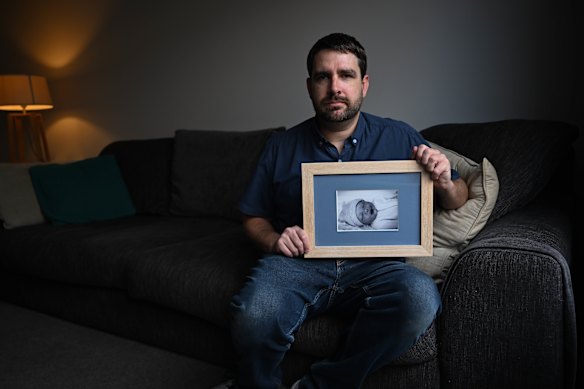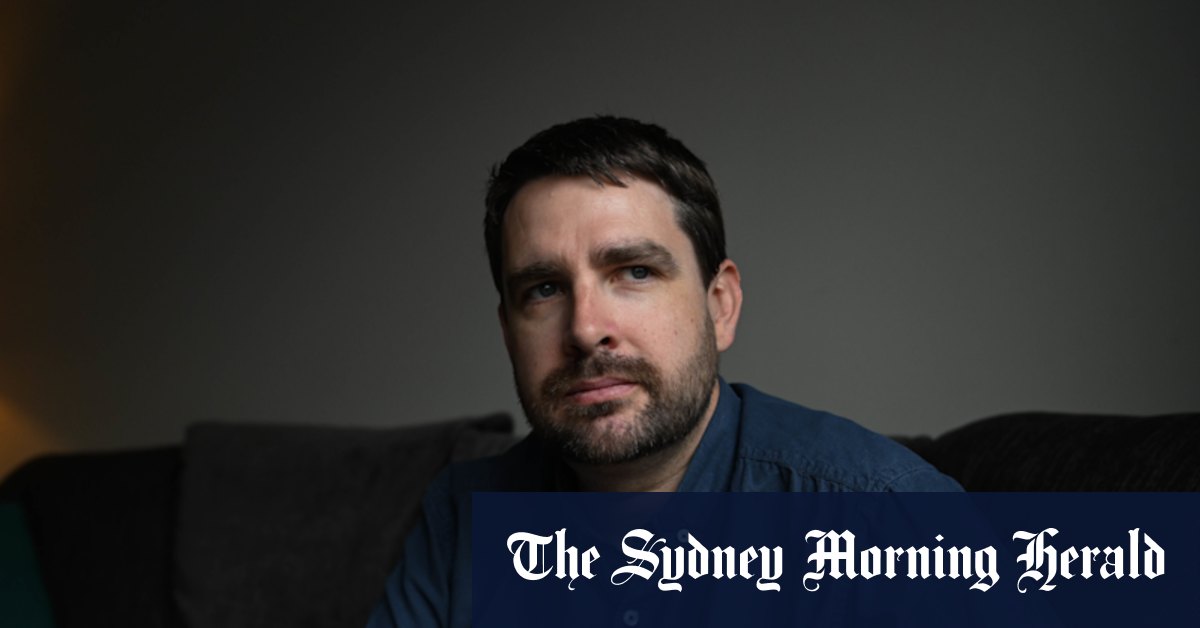These are not just passing worries. Boxer explains for many people the same fear or anxiety shows up again and again in similar situations.
“It often leads people to avoid those situations altogether, or push through them while feeling extremely uncomfortable,” Boxer says. “The fear is usually way bigger than the actual risk involved and can go on for months or years.”
While for some people such experiences can be chalked up to shyness or nerves, Boxer says it crosses into social anxiety when it starts affecting day-to-day life and stops you from doing the things you would normally do.
Lockyer says ruminating about how a social situation may play out in the lead up to an event can also be exhausting.
“If I’m at a kids’ birthday party and I’m asked how many kids do I have, should I say two – because that’s what they can see and it’s an easier answer? But that comes with a sense of guilt that I’m not acknowledging James. If I say three, but one died, is that going to bring down the mood of the whole party?”
Who feels socially anxious?
Social anxiety can impact anyone, from outwardly confident, high-achievers to those with lower self-esteem.
Boxer says people with ADHD and/or ASD may be more prone to social anxiety, while it can also stem from genetic predisposition, current life pressures, past experiences, or trauma such as a sudden loss.
High-profile figures including singer Adele, actress Emma Stone, and tennis player Naomi Osaka have spoken of their struggles with social anxiety, while research shows around 12 per cent of people will experience it at some point in their lives.

Naomi Osaka has spoken of her struggles with anxiety in the past.Credit: Getty Images
Among young people the numbers are even higher.
“Around 17 per cent of Australian youth aged 15-24 years old will experience it,” explains Boxer. “Social anxiety often begins early and around 90 per cent of cases occur by age 23.”
Loading
But the actual number may be underestimated, as experts increasingly recognise it exists on a spectrum, meaning people who don’t necessarily meet the clinical threshold for a formal diagnosis can still experience significant distress or disruption to their lives and may fly under the radar for treatment.
Social anxiety can present as feeling self-conscious around others, anxious or nervous in social situations, or overthinking social interactions after they’ve happened.
It can also trigger physical responses such as a pounding heartbeat, sweating, dizziness, upset stomach, chest pain, or stammering when speaking.
Its impact can be widespread.
“In personal relationships, it can make it hard to form close bonds,” Boxer says. “People may avoid social gatherings, dating, or even maintaining friendships for fear of being judged or saying the wrong thing.”
The workplace can also be a challenge.
“It might show up as difficulty speaking up in meetings, avoiding presentations, or not applying for promotions or jobs that involve social interaction,” says Boxer. “People may seem disengaged or uninterested when really, they’re just trying to manage anxiety. This can affect how others perceive their confidence or competence, which can limit opportunities.”
To the outside world, Rob Davis* cuts a commanding figure. With a senior communications role and a strong physical presence, he’s ambitious, hardworking and successful.
On the inside, he’s quietly battling an undercurrent of anxiety – overthinking conversations, wondering if he measures up to expectation, or trying to anticipate anything that might unveil him as an imposter in a world where he worries he doesn’t belong.
It’s a state of hypervigilance Davis, 33, has lived with since he was a teenager. It was only after a recent diagnosis of ADHD and autism spectrum disorder that he came to understand it as social anxiety.
He says it can range from a low-level background unease to a deep, exhausting debilitation that slowly wears you down.
“My baseline is a mild physical, ever-present discomfort,” Davis says. “When it gets more serious it can manifest in catastrophising and rumination on things that haven’t necessarily happened but could, and the lasting effects of making a fool of myself, or ruined something with the wrong decision.”
Davis says his social anxiety impacts his personal relationships, while professional networking events can be particularly challenging.
“If I had to approach an industry social event, I would spend weeks fretting about the need for it, having to mentally prepare, forcing myself to be ‘on’,” Davis says. “Then I would have to deal with the reverberations of that for quite some time afterwards.”
How to calm social anxiety
Boxer says anxiety is a natural human response and plays an important role in our biology, but sometimes we experience it out of proportion to the threat involved. The good news is we can reshape how much impact it has on our lives.
“We’ll always feel nervous sometimes – but it’s how we respond to that fear that matters,” he says. “If we have the power to build something up in our minds, we also have the ability to tone it down.”
Davis says his neurodivergent diagnosis and the better understanding of himself has been a game changer.
Loading
“I have started taking medication to address my ADHD symptoms and it has alleviated tons of my social anxiety problems and really changed my life – to the point where if I have a work event I have zero concerns going into it and that anxiety hangover I experienced is just not there.”
Lockyer accepts he may always be affected by social anxiety to some degree, however he’s determined to work through his challenges so his other children don’t miss out on social opportunities.
“I don’t give myself a choice,” he says. “If they’ve got a birthday party or want to catch up with a friend, I’ll do it for them. James missed out on all this, so they’re not going to miss out on anything.”

Benn Lockyer has accepted social anxiety may always be a part of his life since losing his son, but he is determined to provide a full life for his children.Credit: Joe Armao
Boxer offers some techniques to manage social anxiety.
Normalise it
Social anxiety is incredibly common, so accepting a bit of awkwardness or nervousness as part of the human experience can take the edge off.
“And if it’s impacting your life, there is help and evidence-based support like CBT (cognitive behaviour therapy) and exposure therapy can work,” Boxer says.
Work on your internal validation
The more confident you feel in your own worth, the less you rely on others to give it to you, Boxer says.
“I tell clients, if you genuinely think you’re awesome, you won’t care what other people think of you. Your internal barometer matters.”
Gradual exposure
Research consistently shows that graded exposure to feared social situations (rather than avoidance) is one of the most effective treatments.
“Start small, like a short phone call, a one-on-one chat, and build up from there. This helps rewire the fear response,” says Boxer.
Self-compassion
“Many socially anxious people are so harsh and overly critical of themselves,” Boxer says. “Practicing self-compassion, even something simple like ‘This is hard, and I’m not perfect but I’m doing my best’, can reduce shame and increase confidence over time.”
Prep some conversation starters
Boxer says if you’re going to a social event, having a few go-to talking points ready is really useful.
“I recommend having three things or stories you can say when someone asks, “How are you?” I’ve even been known to keep a few quirky open-ended questions in my back pocket in case a conversation went flat.
“It’s not about being fake, it’s just giving yourself a bit of structure to feel more confident.”
* Name changed
Make the most of your health, relationships, fitness and nutrition with our Live Well newsletter. Get it in your inbox every Monday.

